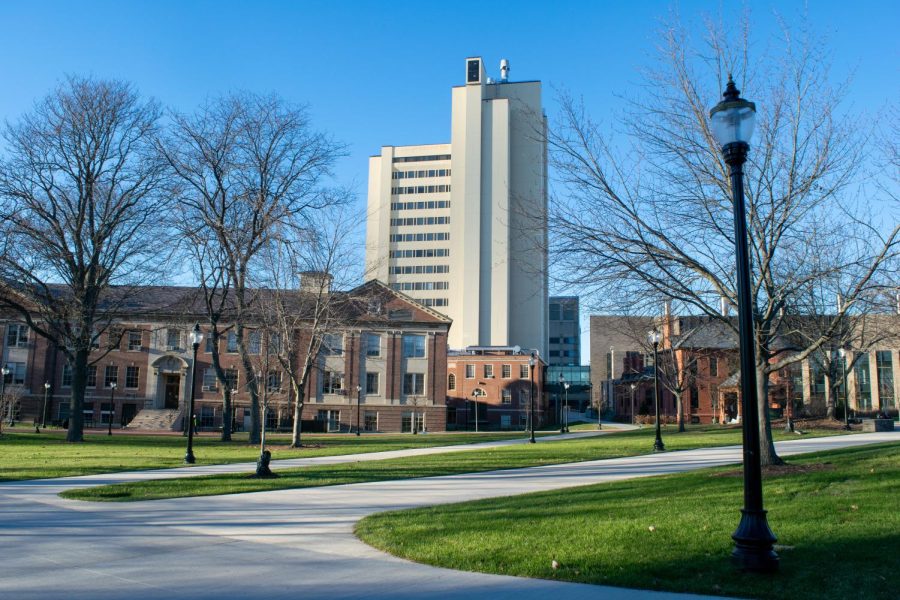This past Monday, Oct. 10 was Columbus Day: a day to celebrate and commemorate the discovery of this land by Spanish explorer Christopher Columbus. Wait, it’s Indigenous Peoples’ Day: a day to recognize and atone for the barbarous and genocidal slaughter of Native populations by Columbus in his discovery of this land.
For the past few years, we’ve been in the midst of a new push toward contending with our uncomfortable past regarding the discovery and the founding of this country. One key feature of this push has been an added focus on sensitizing our language. The renaming of Columbus Day to Indigenous Peoples’ Day is a part of this sensitization.
And while it may irk everyone’s weird conservative uncle (or your edgy friend whose sense of humor never evolved past the ninth grade) and lead him on a tangent about how the new generation is too sensitive, there is actually nothing wrong with the renaming effort.
An often cited counterargument is that all of history is brutal and barbarous and so to penalize specifically the commemoration of Columbus is unfair. But this argument is easily rebutted; as has been well-documented, even in Columbus’ day (no pun intended), people were shocked and horrified at the level of brutality he showed. The Spanish even arrested him due to his barbaric treatment of Indigenous people. To stop some of the intrinsic glorification given to a figure with a holiday named after him seems, in Columbus’ case, justified.
I’d like to approach the subject from a different perspective. To me, the renaming is a morally neutral effort. While it may feel good to remove the name of a brutal, genocidal maniac from a national holiday, it is a purely psychological victory. The act alone contributes nothing to the material improvement in the lives of Native American communities.
The newfound push for cultural sanitization has not been coupled with any efforts toward actual structural reform, beyond the pathetic and ineffectual background noise that is both ever-present and fails to achieve anything substantial. Those that wish to alter language, however moral their motivations are in doing so, appear to be satisfied with stopping right there.
The push for renaming seems to be a part of a liberal tendency to performatively obsess over the latest aesthetic of progressivism, while not actually having much care or concern for the underlying tenets of progressivism. The way in which American neoliberalism deals with Native issues is comical. It seems almost intentionally designed as a systemic cop-out, allowing status quo supporters to enthusiastically gesture at something as an example of their support. They gleefully perform their progressivism for all to see, all the while having the comforting knowledge that they won’t actually have to do anything beyond the symbolic.
The perfect example of this is right here at home — the University of Massachusetts has taken great pains to make clear their dedication to atoning for the original sin of being a university built on Native land. They’ve sent out emails about Indigenous Peoples’ Day and put land acknowledgements (which is another liberal project that is, though well-intentioned, ultimately fruitless) in syllabi and on all UMass websites. Yet, for all of that semantic hand-wringing, they haven’t actually done anything. There has been no effort to create material benefits for local Native communities.
At a governmental level, there has been no substantive action toward making any actual changes in Native American communities’ material conditions. In fact, most of their political victories in the recent past have come as a result of a strange coincidence, with conservative Justice Neal Gorsuch ruling extremely progressively on Indigenous issues. While that may seem like a nice example of bipartisanship (something neoliberals drool over), the reality that any substantial political power for Native communities exists only due to, and rests completely on, one man’s counter-intuitive ideological preferences is a sobering thought.
Contrary to what this piece may suggest, I think aesthetic progressivism is fine. Massive populations are not won over by the minutiae of policy — they are won over by good political imagery. To expect the electorate to internalize a 314 page document on Native American policy prescriptions is foolish, but we can expect them to adopt the aesthetic of helping those our society has historically mistreated, and righting past injustices.
Aesthetic progressivism is fine, but it must serve to further tangible progressivism, otherwise it risks being a performative exercise done for oneself. Calling it Indigenous Peoples’ Day is fine, but it must be done in conjunction with a push for systemic reform, otherwise it is entirely a performative exercise being done by liberals for themselves.
Manas Pandit can be reached at [email protected].



















